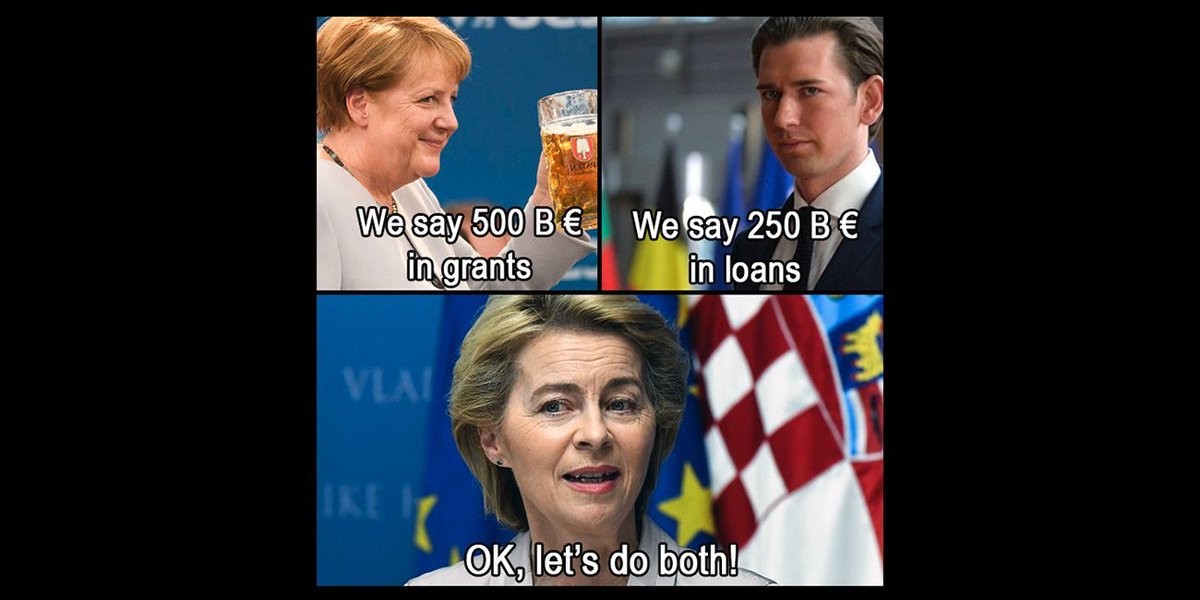So building on existing comments and after digesting most of the docs. The @EU_Commission is very important for the EU budget, it is however small in comparison to the size of the macroeconomic shock but might be politically meaningful for EU integration. https://twitter.com/gregclaeys/status/1265604035761131520">https://twitter.com/gregclaey...
All in all, by my count, the total of new grants/transfers announced are to the tune of 450bn. This is a touch short of the FR-DE agreement but meaningful. My bet is that loans to MS won& #39;t be used at all (because if @ecb does its job, it won& #39;t be needed).
The instruments used are important but it is not clear exactly how much strings will be attached to the Recovery and Resilience facility. It seems to be an improved BICC embedded in the EU semester, which could pave the way for some (probably light) conditionality.
The Solvency Support instrument will provide some 30bn of Guarantees to the @EIB to enable "solvency support" to European corporate in difficulties. This could be a first important tool for the EU& #39;s industrial policy. It could allow equity stakes or guarantees.
Macro-economically speaking, the whole plan is relevant (circa 2% of GDP in transfers/grants) but still small in comparison to the likely increase in debt to GDP in 2020/2021 (circa 20%).
Given the instruments, it is unlikely that the funds will be mostly targeted to the regions and sectors most affected by COVID. Eastern Europe would probably benefit greatly from a number of the revamped programmes.
Politically, all will depend on the own resources decision that will finance this largely temporary increases in EU resources. So far the proposals for true own resources are unambitious in size and scope (no VAT, Corporate tax or anything immediately large and credible)
The question of the rebates will also play a central role in ascertaining the real net transfers taking place through these new resources.
In the best of worlds, this own resources decision will be finalized in December 2020, it will then require (27) national ratification, it is hard to imagine that the first bond issuance would take place before summer 2021 at the very best.
All in all, this however likely to start a very important political debate on the EU& #39;s taxing and spending powers that could culminate with an institutional debate under the German Presidency of the Council setting the stage for more ambitious treaty reforms down the line.

 Read on Twitter
Read on Twitter


